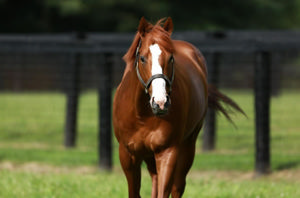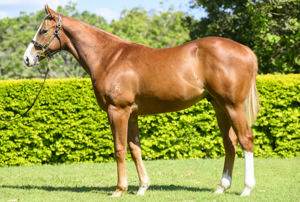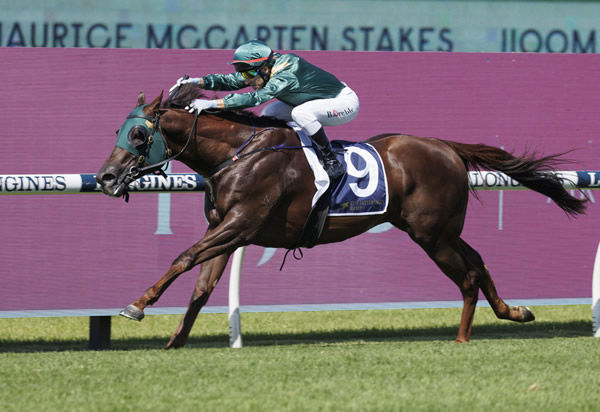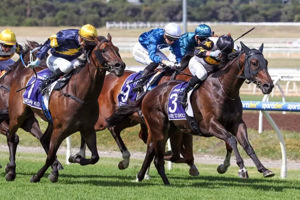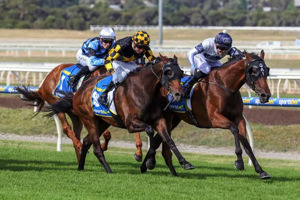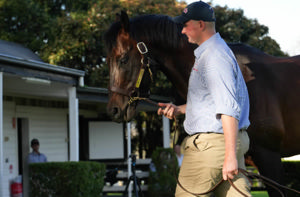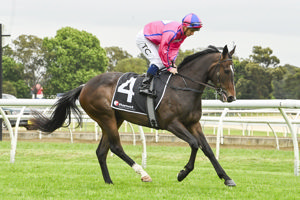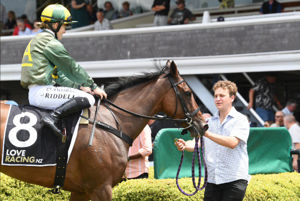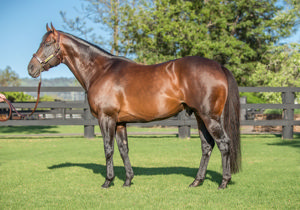Amidst the season of XMAS festivities, goodwill and hope for a prosperous 2019, I'm in no mood to be a sad sack and update you on negative tax issues currently relating to the breeding and racing industry.
Accordingly, I've reached deep into my sack of tax cases and found a recent one that gives hope for high income earners being able to claim their losses immediately under the 'Non-Commercial Loss' (NCL) rules.
What's really interesting about this tax case is that it questions the previous negative AAT judgement in this NCL case that I bought to your attention in April 2015.
This case involves a high income earning Arabian Horse Breeder based in WA who, via the lodging of a private ruling, attempted to have her horse tax losses deducted for the 2012/13 to 2017/18 tax years.
The significance of this case was that the breeder tried to argue that she had started a 'new business' in 2008, as by successfully arguing this she would 'reset' the time from when her breeding activities had to be viable within a commercially accepted industry time frame By doing this, it increased her chances of immediately deducting losses from 2008. She had made breeding losses since her start-up in 2000, but she and her advisers would argue that her "current business" started under a new model in 2008, an argument the AAT ultimately rejected.
The breeder in this case subsequently appealed the decision to the Federal Court, arguing that the ATO's original logic in considering whether a 'new business' had started was flawed and thus should be sent back to the ATO for review.
For the sake of the breeder, let's hope she is successful after her ruling request is reconsidered (I'll certainly update you on this outcome), but regardless it's a positive that the Federal Court has made the ATO reconsider the manner in which it determines what is a 'separate business activity', as its application was found to be too limiting in its original objection decision.
Facts
To give the new case decision some context, a revisit of the facts is necessary.
The breeder (hereafter referred to as "HVZZ") commenced owning and operating a horse breeding business in the 2000 income year. The ATO examined her activities in the 2005 and 2006 income years and, after initially concluding that they did not constitute carrying on a business, conceded that her activities constituted carrying on a business for tax purposes.
In 2008, HVZZ expanded her horse breeding activities in ways that included significant capital investment, starting a breeding program and hiring a farm manager.
As the adjusted taxable income of HVZZ now exceeded $250,000 p.a., the only way she could have her horse losses immediately deducted for the 2012/13 to 2017/18 tax years was by way of seeking a successful private ruling with the ATO.
HVZZ duly applied to the ATO for a private ruling in relation to the 2011/2012 to the 2017/2018 income years (though 2011/12 was later removed by HVZZ) Under the NCL rules, the ATO may decide that the NCL loss deferral rule does not apply to a business activity for one or more income years if it is satisfied that it would be unreasonable to apply the rule because the business activity has started and:
• it has not produced, or will not produce tax profits in relevant years, and
• there is an objective expectation, based on independent evidence, that the activity will produce a tax profit within a period that is commercially viable for the industry.
Note – if losses are 'deferred' under the NCL rules, they are carried forward and cannot be used until a later year when a profit is derived.
The ATO issued a ruling that it would not allow the losses to be deducted in the relevant years. HVZZ objected to the ruling, the ATO disallowed the objection and HVZZ applied to the AAT for a review of the decision.
HVZZ contended that the ATO should allowed the losses because she had commenced a new 'business activity' from the 2008 year onwards, having expanded in it as described above. She said the business activity would not produce a tax profit in each of the relevant years but there was an objective expectation that it would do so within the 'commercially viable period for the industry', based on evidence from independent sources.
Original AAT decision – not a 'new business'
The AAT affirmed the ATO's decision not to grant relief from the non-commercial loss deferral rule. It found that the scheme, as identified by the ATO in the private ruling did not include a 'new business activity' commenced in 2008 and there was no objective expectation as to when the business activity, even if it did commence in 2008, would produce tax profits for an income year.
What was the 'new business activity' being argued?
For reference purposes, HVZZ contended that from 2008 she had a "new business activity", primarily as a result of:
(i) an investment of significant capital (approximately $6.9 million);
(ii) the introduction of new stock (i.e. a switch to the international bloodline Arabian horses), the commencement of an international marketing program and the commencement of a breeding program; and
(iii) the employment of an expert farm manager.
New appeal decision gives hope!
Without delving too far into the technicalities, the primary case of HVZZ in this appeal was that in the original ATO Objection Decision the ATO had asked the 'wrong question' about the identification of the 'business activity' in question. In simple terms, it was contended that the decision-maker had misconceived his or her statutory task.
The main issue the Federal Court had with the original ATO objection decision (this adverse decision being the very reason HVZZ went to the AAT in the first place) was that two business activities carried on by a taxpayer may be the same but nonetheless be sufficiently distinct , so that each is a separate business activity , if, for example, one follows the other sequentially, as they did in the HVZZ case.
For these reasons, the Federal Court held that the Objection Decision should be set aside, and the ruling application should be forwarded to the ATO for re-determination in accordance with law. It will be for the ATO to determine, in accordance with these reasons, whether, on the facts, a business activity separate from that commenced in the 1998 income year, started in the 2008 income year. In other words, it is still open for the ATO to hold that the new 2008 business was, indeed, a new 'business activity'.
This Federal Court finding reflects the reason why the NCL rules uses the phrase "business activity" instead of the word "business". Tellingly, earlier paragraphs in the ATO's original ruling decision directed at identifying what constitutes a "separate business activity" were neither referred to, nor reproduced in the Objection Decision.
If you wish for me to clarify or expand upon anything mentioned in this article, please do not hesitate to contact me.
PAUL CARRAZZO CA
CARRAZZO CONSULTING
801 GLENFERRIE ROAD, HAWTHORN, VIC, 3122
TEL: (03) 9982 1000
FAX: (03) 9329 8355
MOB: 0417 549 347
e: paul.carrazzo@carrazzo.com.au
w: www.carrazzo.com.au
